Penny Dreadful has returned to deliver a tasty slice of Victorian locution. As a writer, the show has caused a strange question to circle my craft: how exactly do we choose the words for our stories? Where did they originate in our minds and what is the catalyst for their resurgence? I’m not referring to the genesis of one’s creative muse but rather the specific process of selecting words. This process can be instantaneous––clarity born from Instinct––or it can become a grueling war of attrition. It’s one of the great mysteries and struggles of being a writer. We wield a power that can’t be fully commanded or even understood, a wild beast neither predator nor pet. Yet achieving harmony with that power and discovering the perfect word…it’s a unique satisfaction that falls outside my ability to define.
Instinct as Co-writer
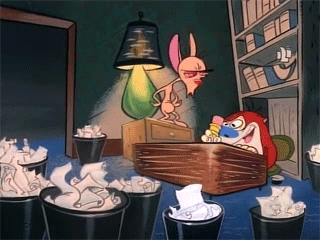 Writers are often far more eloquent in our written word than speech. We’re all essentially gods playing with our creations––our words are gospel, and we take our time with them. Sometimes, when the stars align, those words flow with such ease that they seem to speak through us, not from us. When this blessing occurs, what connection is being made in our minds, what neurons are firing in our brains that bring a certain word to the surface? Is it from a memory being triggered, a dream long forgotten, or a conversation from years past? Where did we first learn that specific word only to secure it away like treasured jewelry to be presented at the appropriate occasion? There are too many variables to attribute sole credit for this phenomenon, so I simply call this part of the process Instinct.
Writers are often far more eloquent in our written word than speech. We’re all essentially gods playing with our creations––our words are gospel, and we take our time with them. Sometimes, when the stars align, those words flow with such ease that they seem to speak through us, not from us. When this blessing occurs, what connection is being made in our minds, what neurons are firing in our brains that bring a certain word to the surface? Is it from a memory being triggered, a dream long forgotten, or a conversation from years past? Where did we first learn that specific word only to secure it away like treasured jewelry to be presented at the appropriate occasion? There are too many variables to attribute sole credit for this phenomenon, so I simply call this part of the process Instinct.
I don’t question Instinct. If a word pops in my head, I’ll use it. Sometimes I won’t be able to clearly define the word but just know, through and through, that it’s the proper choice. That choice is unconscious but not random, like a form of intelligent design. Some people call this “talent” but I’ve never liked that word. To me, talent implies a lack of effort as if something was given to you without it being earned or deserved. Nothing I’ve written has been easy. My Instinct isn’t a gift, it’s been honed over countless hours of writing.
When I’m at my most productive, when Instinct is in full force, my Mind’s Eye is visualizing everything. In my novel, Fall From Grace, the initial description of Satanail came to me immediately and changed very little throughout the rewriting process.
“Michael turned to his brother and closest friend, Satanail––a being of supreme confidence grinning behind a thick beard and bundles of long, black locks. Gray irises fixated on Michael like coffers of mystery kept forever sealed. He trusted Satanail with his life, everyone did, but he never could decipher the motives behind those vacant eyes.”
 A few key words and phrases define the character as seen through Michael’s perspective. “Supreme confidence” is an economical way to speak volumes about everything from Satanail’s speech to his movements. “Coffers of mystery” conjures imagery of an ancient chest or trunk, one that could hold riches but that you’d be wary to open. Lastly, “vacant eyes” made me think about how eyes are said to be the window to the soul and how chilling it is when that window is blocked. I’ve always found the dead eyes of a Great White shark to be downright haunting.
A few key words and phrases define the character as seen through Michael’s perspective. “Supreme confidence” is an economical way to speak volumes about everything from Satanail’s speech to his movements. “Coffers of mystery” conjures imagery of an ancient chest or trunk, one that could hold riches but that you’d be wary to open. Lastly, “vacant eyes” made me think about how eyes are said to be the window to the soul and how chilling it is when that window is blocked. I’ve always found the dead eyes of a Great White shark to be downright haunting.
I’ll never know exactly what triggered these particular choices or why my Instinct made this passage easier than most. Perhaps it’s related to what writers mean when we say our characters speak to us. The saying sounds pretentious but it’s not wrong. Characters focus our thoughts, sift through our vocabulary, and pull out what they need. Sometimes Instinct is receptive to our characters, and sometimes we find ourselves fighting a––
War of Attrition
 Instinct isn’t always around to hold our hands. Sometimes the stubborn bastard refuses to awaken. In my first drafts I don’t let myself get hung up on a specific word. Pacing is so important at that stage, and staring at a screen for twenty minutes searching for one word can kill the creative flow. I’ll often put a placeholder word in my first draft just so I can move on, and then I’ll dig deeper for the correct word while rewriting.
Instinct isn’t always around to hold our hands. Sometimes the stubborn bastard refuses to awaken. In my first drafts I don’t let myself get hung up on a specific word. Pacing is so important at that stage, and staring at a screen for twenty minutes searching for one word can kill the creative flow. I’ll often put a placeholder word in my first draft just so I can move on, and then I’ll dig deeper for the correct word while rewriting.
When Instinct decides to abandon me, finding that perfect word can be a debilitating nightmare of trial and error. All synonyms aren’t created equal. Testing out one word brings up a neurotic can of worms. When did I last use that word? In what context? Is it too soon to use it again? Should I replace the earlier usage? Truth is, when you’re writing 100,000+ words, you tend to repeat yourself. But I never give up hope. The word is out there, and I’m more stubborn than Instinct. I try not to end a writing session until I’ve found that word otherwise I’m left with a sour taste of self-disappointment that won’t go away until the problem is resolved.
More often than not, I bleed over my sentences. Word choice, grammar, pacing, and even the visuals of how it looks on the page––it all matters. Readers don’t see the strain behind something so apparently simple as a sentence. I write a lot of action scenes, and these require more digging and rewriting than most. If I’m at war with a passage, each sentence, each individual word, is an important battle.
“Satan and Michael’s personal armageddon butchered all that remained of their angelic features, madcap fists chipping away like axes at desiccated tree trunks. They fought on with ruthless abandon, sustained only by a concoction of competition and jealously slow-brewed over their entire lives. The visceral brawl was a mortar and pestle that crunched bones and rent flesh to punish. To kill.”
In this passage, I was determined to provide a grand overview of the fight rather than a blow-by-blow description. “Madcap” was exactly what I needed to relay the reckless, frenzied nature of the combatants. “Desiccated” spoke to their withering bodies. “Slow-brewed” competition and jealously highlights a core conflict between the two brothers explored over the entire novel. And “ruthless abandon?” Come on, it just sounds cool.
Nothing about this passage came easily or quickly, but the end result is one of my favorite moments in the story. As is true in any trade, hard work pays dividends. Instinct be damned, you can still make your prose sing without it…if you’re willing to bleed.
One Word at a Time
Writing isn’t science. The creative process can’t be quantified, collated, examined in a Petri dish, or harnessed by force. Whether Instinct hands us the perfect word without fuss or we have to fight for it tooth and nail, the grand power behind it all remains abstract and indefinable. It’s our blessing and our curse, our love and our hatred. This is all we know.
My name is J. Edward Ritchie, and I am a writer.

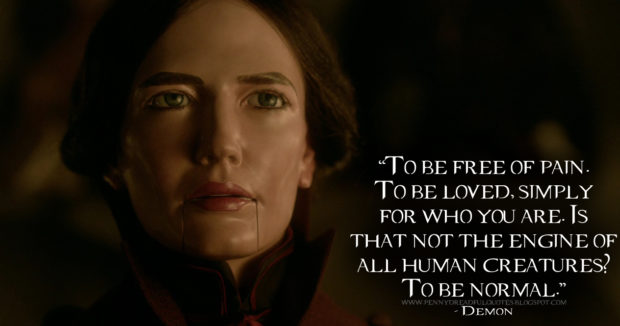
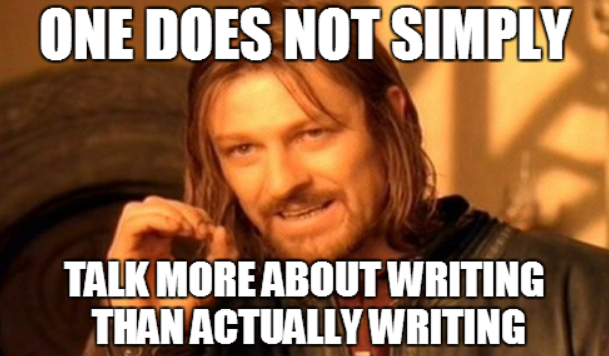
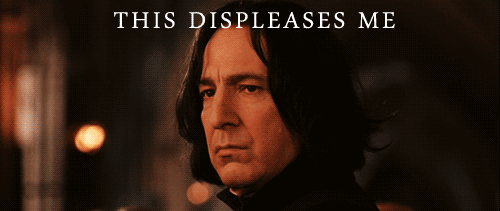
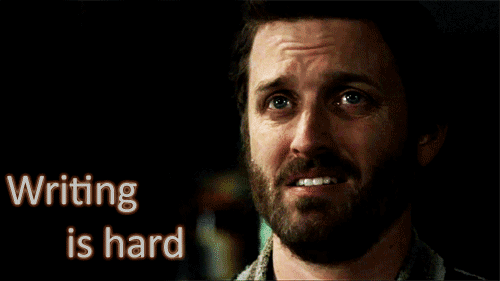
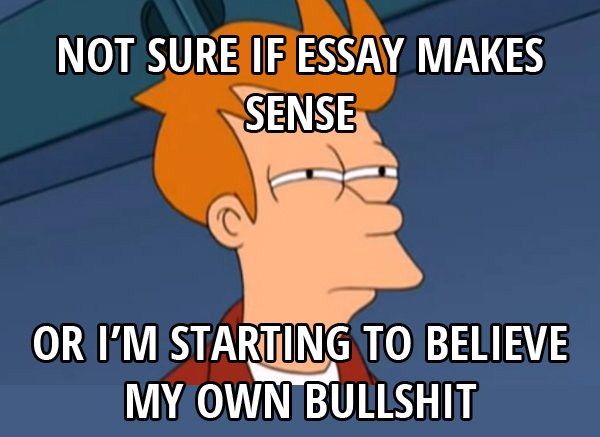
Love this. Very telling into the soul of a writer
Thank you! It was a piece that came to me and was written in a few hours. I’m glad you enjoyed it.
Love this. I also bleed over my word choices. The snip of the fight scene is spectacular. 🙂
Thanks! I really enjoy the editing process. How great does it feel when you finally get a sentence exactly right? It’s like a million tiny victories per novel 🙂